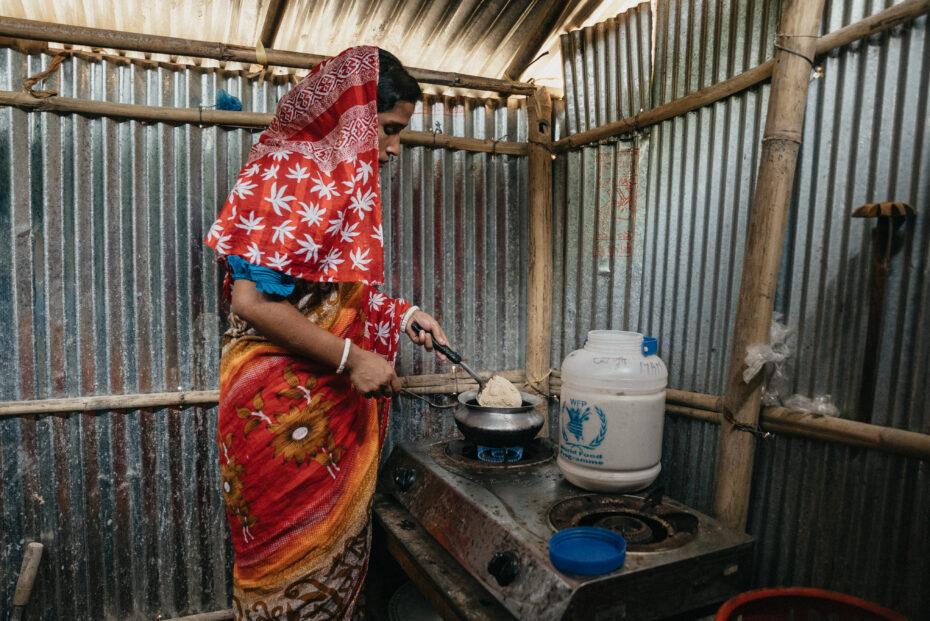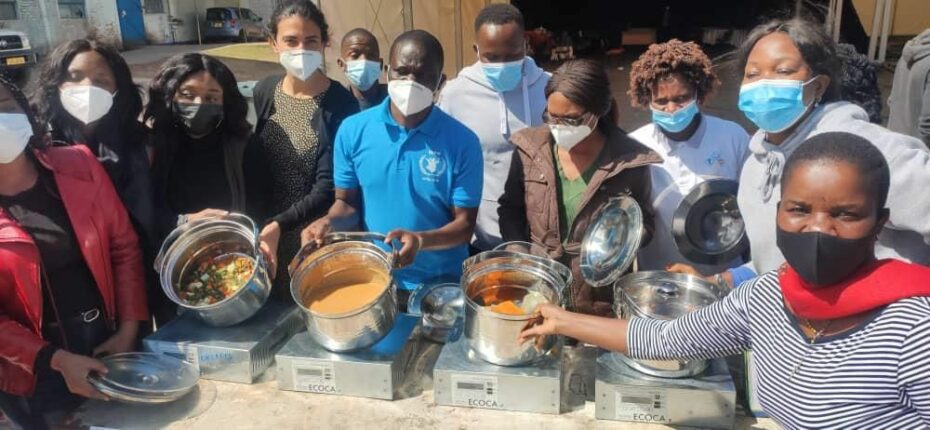
Through the International Youth Internship Program (IYIP), a joint program with the Government of Canada and the United Nations Association in Canada, young Canadians are given the opportunity to gain professional experience in international development work. Natalie Wu, a Bioresource Masters student, was selected to take part of the 2021 cohort. She was a Junior Professional Consultant (JPC) and was remotely placed for six months at the World Food Programme’s (WFP) headquarters in Rome.
Within WFP, Natalie was part of the Climate and Disaster Risk Reduction Programme Units’ Energy for Food Security Team. This team aims to integrate climate and energy solutions across a range of programmatic areas including school feeding, smallholder farmer support and nutrition. As a JPC, Wu supported the Energy for Food Security Team with research communication, knowledge sharing and project implementation. She worked on a range of projects including designing nutrition research methodology, reporting on 2020 energy results, creating country energy profiles, as well as, writing brochures about current WFP projects and their impacts on Sustainable Development Goal 7 (SDG 7). Through this experience, she learned the importance of sharing knowledge of SDG 7.
Wu has prepared the following article.
Sustainable Development Goal 7
Over the past decade, access to electricity has expanded, the use of renewable energy has increased, and the energy efficiency has improved. However, there are still 759 million people worldwide who lack access to electricity. SDG 7 aims to ensure access to affordable, reliable, sustainable, and modern energy for all. There are five specific targets that need to be met by 2030 including increasing the share of renewable energy in the global energy mix, enhancing access to clean energy research and technology, and expanding infrastructure and upgrading technology for supplying modern and sustainable energy services for all in developing countries. Clean and affordable energy is an engine of transformative socioeconomic opportunities that touches on all aspects of sustainable development as it is essential in achieving two-thirds of the United Nations Sustainable Development Goals (SDGs).
Enhancing food security with improved energy access
Energy access is a fundamental enabler to achieving food security and zero hunger (SDG 2) as energy is not only necessary to consume food but is essential for every stage of the food system including food production, processing, transportation, preservation, and consumption.
In food production, having access to energy increases efficiency and crop yields. Energy powers equipment that enables efficient land clearing, preparation, and harvesting. Water pumps allow irrigation and water distribution while bio-digestion systems transform organic waste into gas energy and soil-fertilizing sludge. After food production, food processing such as milling, grinding, de-husking, and pressing heavily benefits from energy access. Energy powered storage and handling technology such as refrigerators, drying, pasteurization and packaging machines can help reduce post-harvest food loss and improve food quality. These energy power technologies enable farmers to control the timing of crop sales and enables food to reach the markets and consumers. Thus, improving household income and increasing the availability of nutritious foods.
Impacts of clean cooking
According to the 2020 Tracking Sustainable Development Goal (SDG) 7: The Energy Progress Report, globally 2.8 billion people do not have access to clean cooking fuels and technologies. Food consumption is negatively affected by the lack of energy in multiple ways. Being unable to properly cook food or disinfect water by boiling increases people’s chances of contracting a food borne illness. High prices and energy scarcity force any people who struggle to secure cooking fuel to adopt coping strategies that have negative impacts on nutrition such as bartering food rations for fuel, purchasing less food or less nutritious food or skipping/undercooking meals.

Many are forced to rely on inefficient cooking technologies and fuels however, emissions from these can cause respiratory diseases. It is estimated that 4 million deaths each year are linked to air pollution from cooking. When the energy cooking needs of displaced people are ignored, it often results in tensions with host communities over biomass resources such as firewood which can be used as cooking fuel. As well, collecting these resources exposes people (disproportionally women and children) to harassment and violence.
Not only does have inefficient cooking impact people’s health but the health of the environment. Collecting firewood for cooking fuel contributes to deforestation, soil erosion, and loss of biodiversity. While the use of open fires and inefficient stoves emits greenhouse gases and contributes to climate change.
The reduction of these negative impacts of inefficient cooking can be achieved lowering or eliminating the need of harmful fuels through improved cookstoves or modern cookstoves. Improved cookstoves are those that use solid or sometimes liquid fuel to deliver higher efficiency cooking than traditional cooking methods such as three stone fire. While modern cookstoves are those that have very low levels of polluting emissions utilize fuels such as liquid petroleum gas, ethanol, biogas, or electricity very efficiently.
The shift to more efficient cooking technologies includes a variety of options to best suit the population. In rural locations, efficient biomass stoves are suitable if there is no access to electric girds or viable way to get fuels such as LPG to the community. While electric pressure cookers are a great option when electricity is available either on-grid, from mini-grids, or stand-alone photovoltaic systems. As of 2019, 90 per cent of the global population is connected to electricity, meaning electric cooking is becoming a realistic option for many.
Despite significant progress over the past decade, only 66 per cent of the global population has access to clean cooking technologies and fuels. There are still many people worldwide who are reliant on polluting fuels as technologies. With the work of agencies such as WFP and UNA-C, conducive environment for clean and modern cooking solutions can be adopted in all communities around the globe.

